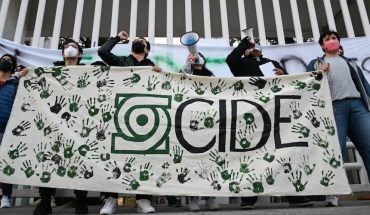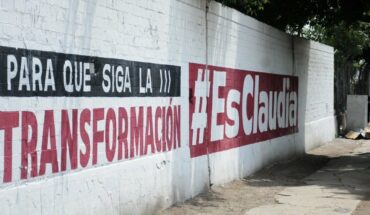
On October 5, the Prosecutor’s Office will formalize the former undersecretary of the Carabineros, Javiera Blanco, and also 3 former general directors of the uniformed police -Eduardo Gordon, (2008-2011), Gustavo González Jure (2011-2015) and Bruno Villalobos (2015-2018)- for embezzlement of public funds, in a case that again puts on the table the misuse of reserved expenses.
Specifically, according to the complaint of the State Defense Council, Blanco received improper payments from expenses reserved between 2006 and 2010, for at least $47 million 300 thousand. According to the tax agency, the money was delivered in paper envelopes, first monthly and then quarterly.
For Francisco Zambrano, an expert anti-corruption lawyer at the University of Santiago de Chile, what happened in this case “is a practice that makes us remember the cases of corruption with such crude schemes of paying below bonuses with money that is not intended for that.”
In his opinion, as happened in this scheme detected by the Prosecutor General’s Office, “there is embezzlement of public funds from money that is not intended to serve the whim or the assets of the directors general.”
“With regard to these facts, not only the State Defense Council, but also the North Central Prosecutor’s Office was convinced that there is sufficient background in the investigation, regarding the sufficiency to accuse and to reach a conviction for these improper payments of almost 50 million pesos between September 2006 and March 2010,” remarked at The Counter in La Clave.
Regarding the figure of Blanco, the academic recalls that after her time in the Undersecretariat of Carabineros in the first Government of Michelle Bachelet, and as Minister of Justice in her second administration, “later she was appointed as Counselor of Defense of the State, which occurs with a lot of noise because she did not have relevant judicial experience and that is one of the requirements, it’s being an outstanding lawyer who litigates in court.”
“And she will be formalized along with three other former generals, three of them former general directors of the Carabineros, because they literally received bonuses because cash was paid as stated in the complaint from the North Central Prosecutor’s Office. Part of the reserved expenses handled by the general directors of the institution went in cash in a paper envelope to increase the remuneration of Mrs. Blanco.”
The announcement of the formalization of Javiera Blanco and the former general directors of the Carabineros keeps on the table the issue of the misuse of the reserved expenses, as has also happened with the cases of the former commander in chief of the Army, Juan Miguel Fuente-Alba, and the former director of the Investigation Police (PDI), Hector Espinosa.
This Monday, the lawyer Paula Vial, issued a brief statement in which she points out that “my client Javiera Blanco has been notified of a judicial procedure in the so-called Reserved Expenses case, as is public knowledge she was cited in other judicial cases with false accusations against her, each of them being discredited, the same will happen this time.”
Changes in institutionality
Zambrano highlights the changes in the institutional framework in order to strengthen the control of the civil power over this institution.
“The practice of accountability in this matter is substantially the same, what happens is that the institution must be accountable to the Ministry of the Interior in the case of carabineros and to the Ministry of Defense in the case of the FFAA, regarding the use of these expenses. There is a negative coexistence when there is a bonus with respect to the civil authority that must supervise these reserved expenses,” he says.
Therefore, “the civilian power is not exhausted in the Ministry of Interior and Defense, because then it passes to the Comptroller’s Office, and that is where the accountability is reviewed and there have been expressed criteria and protocols on how detailed the accountability should be, the difference has been made because in the institutional practice that exists since 2020, more precise rules of accountability have been made.”
To this is added that “the institutionality in matters of civil control towards the FFAA has changed, and in fact the position that Javiera Blanco served no longer exists, there is no special undersecretariat for the Carabineros de Chile.” “It is strange to have an undersecretary who controls and on whom the Carabinero depends.s of Chile, co-opted by these practices of bonus,” he said.
However, despite the changes introduced, the specialist maintains that “in effect penalties, they are never enough and in Chile the penalties for corruption have not been increased in recent times.”
For this reason, he says that “it is highly likely that Javiera Blanco will not end up with a custodial sentence,” given that “mitigating factors may be applied to her.”
This is despite the fact that “one would expect that with the latest cases of corruption the penalties and internal control procedures will be increased and not wait for the criminal sanction for the purpose of making responsible, but prevent with a more concrete and effective internal control”.
The issue may have other edges, he warns, given that “the funds are not simply deposited in the account or given in cash to Mrs. Blanco, but may because of her political position or political sensitivity could end up in illegal financing of political campaigns, given the extent of the crime that constitutes money laundering.”
Moreover, it points out that “the funds are given to the authority that theoretically should control those funds, there could even be a crime of bribery, in between, for the purposes of inhibiting that supervisory function.”
Check out Francisco Zambrano’s interview at El Mostrador in La Clave:
“The fact that it is reserved, does not imply that it is not controlled”
In Zambrano’s opinion, the concept of reserved expenditure is misleading, because “the fact that it is reserved does not imply that it is not controlled, but that its control is also expressed in this reservation that is necessary for the proper functioning of public institutions (…) but that secret does not inhibit control.”
“What the law establishes is that both the Carabineros and the Ministry of the Interior must keep these expenses confidential because they have a purpose in the rule of law. But just because the control isn’t displayed or published doesn’t mean it shouldn’t exist,” he explains.





